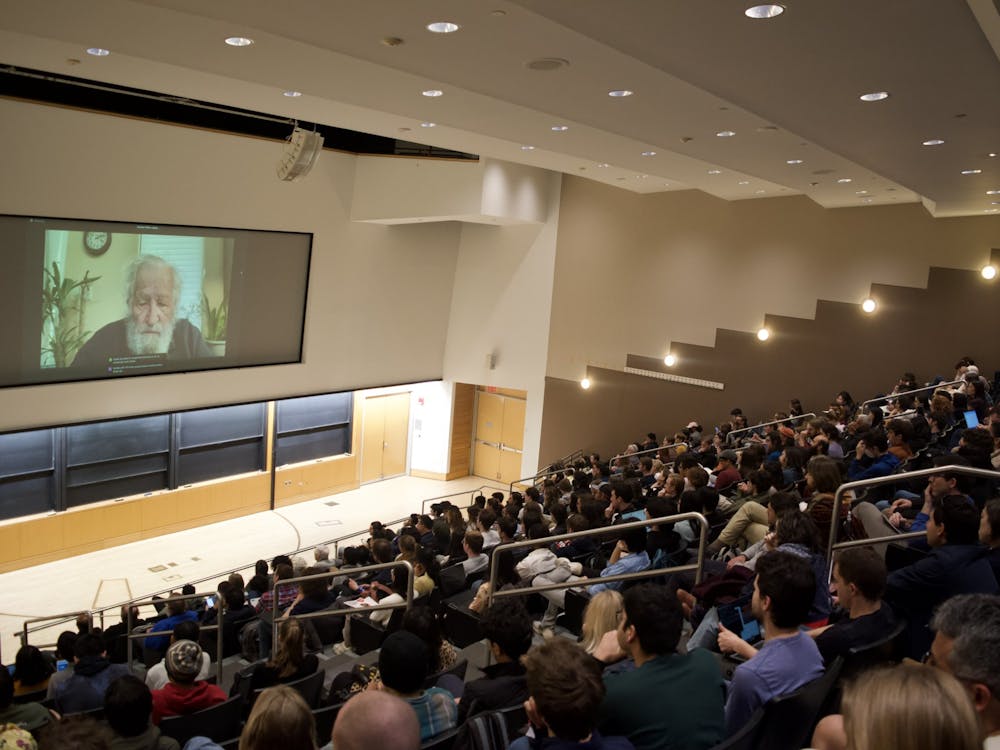In a lecture, Wilson School professor Aaron Friedberg and Brookings Institution senior fellow Michael O’Hanlon GS '91 each presented several possibilities for action that the Chinese government may take under President-elect Trump in the future, all of which suggested a Chinese desire to scale back American influence in East Asia so that China can become the preeminent power in the region.
Friedberg identified the two main scenarios that he views as possible regarding U.S.-China relations: tough confrontation and diplomatic cleverness. On one hand, he said Trump may make good on his campaign threats towards China, maneuvering to balance the U.S.-China trade deficit and maintain American dominance.
“Chinese observers see two potential scenarios. One would be a situation which the Trump administration followed through on its harsh rhetoric,” Friedberg explained. “So one possibility is that the Trump administration could really take a hard confrontational line towards China and that relations could really spiral down quite rapidly.”
He added that it’s possible for China to diplomatically approach Trump in order to establish good relations and take advantage of the Trump administration’s focus on the Middle East to consolidate its own power.
“I can imagine that as Mr. Trump comes into office, China will try to, instead of testing the administration, as they’ve done with the Bush administration and the Obama administration, extend an olive branch, unleash a kind of charm offensive, invite Mr. Trump to pay an early visit to China,” Friedberg said. “The Chinese are world experts at flattering political leaders and making them feel smart and important.”
O’Hanlon then explained what he felt was the most likely path for U.S.-China relations to take. Given China’s recent history of being oppressed, invaded, and taken advantage of by both Western powers and Japan, he said, the current Chinese regime, which he termed a “recently-arrived power,” will seek ways to bolster its own position as the preponderant power in Asia.
“That recently-arrived power is looking for ways to flex its muscles in a manner that hopefully lets it have its cake and eat it too,” O’Hanlon explained. “What they’re actually doing is trying to increase their sway in this region, and at a minimum, be a co-equal power to ours militarily and the preeminent power economically.”
However, according to O’Hanlon, one thing to be optimistic about is the fact that, compared to most rising world powers, China is carrying out its ascension in a relatively non-violent way, although he went on to warn that we shouldn’t expect this behavior permanently.
“If the worst they’ve done to date so far in reasserting this national pride is to try to get the upper hand in these unclaimed areas of the South China Sea, I’m going to stay hopeful that this is a country that is acting in, frankly, by the standards of history, a fairly restrained way for such a rapidly-rising power,” O’Hanlon said.
In explaining China’s relatively nonviolent aggression, Friedberg pointed to the fact that the Chinese Communist Party is constantly seeking ways to maintain its legitimacy in the eyes of the Chinese people. According to Friedberg, the CCP is not looking to start another world war, but it will continue to act aggressively in order to create tension and maintain patriotism and national support.
“[China] doesn’t want World War III, but it also doesn’t want a world in which people in China might say, for example, ‘Thank you very much, Chinese Communist Party, you’ve saved us from the century of humiliation and turned our country into a modern economic power, we’re now ready to rule ourselves.’ That’s not what the CCP wants, and partly because of that reason, it’s going to behave in ways that are aggressive towards the rest of the world,” Friedberg said.
Both Friedberg and O’Hanlon stated a need for the U.S. to continue pushing back against China’s increasing concentration of power under the Trump administration, with Friedberg adding that China’s goal is to make the world safer for authoritarianism. O’Hanlon also offered his belief that the U.S. should increase its military spending.

The lecture, entitled “What Comes Next? The Future of the U.S.-China Relationship under Donald Trump,” took place 7:30 p.m. on Wednesday at Jones Hall, room 202. It was sponsored by the University’s chapter of the Alexander Hamilton Society, which Friedberg co-founded.








